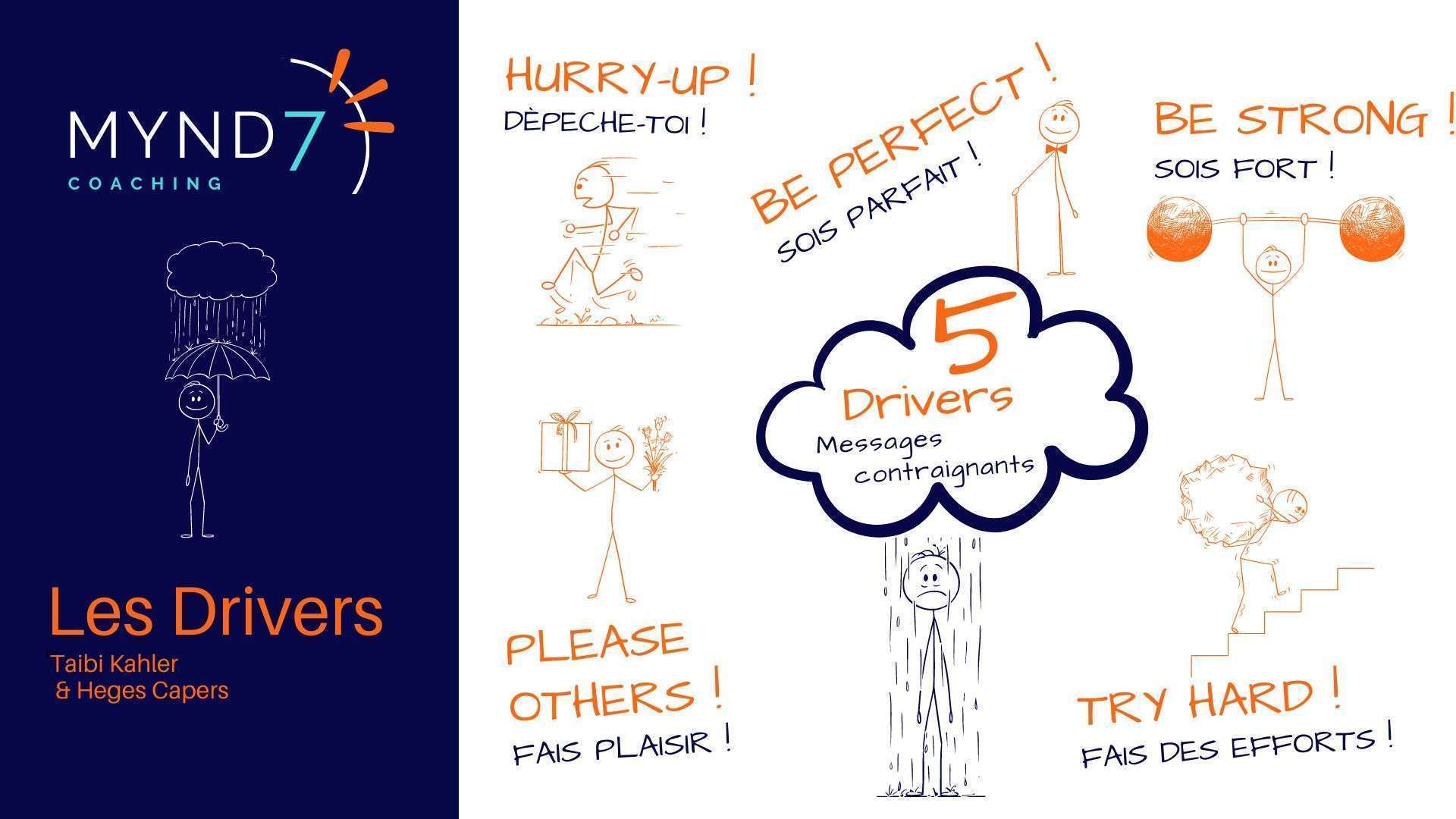The theory of « Drivers, » developed by American psychologist Dr. Taibi Kahler in the 1970s, highlights five automatic thinking and behavior patterns called « Drivers » or « constraining inner voices. » These drivers influence how we act in certain situations and may have their roots in our childhood, resulting from subtle or explicit messages received from our environment.
These drivers vary from person to person and may be present to varying degrees. To master them, it is crucial to become aware of their presence and their impact on our lives.
The first step to mastering them is to identify the situations where they manifest and recognize the thought and behavior patterns that result from them. It is important to step back and question these limiting beliefs. Coaching proves to be a powerful tool to identify and constructively challenge these drivers, promoting more balanced development.
Coaching provides a safe and supportive space to explore these drivers, understand their origin, and their consequences on our lives. A coach can help develop a deep awareness of recurring patterns that limit us and find alternative perspectives. Through relevant questions and specific techniques, the coach encourages profound reflection and challenges the beliefs that support these drivers.
Working with a coach allows exploring new ways of thinking and behaving, identifying positive and balanced alternatives. The coach can assist in developing practical strategies to counter these constraining drivers, such as establishing healthy boundaries, learning time management, practicing self-compassion, and building self-esteem.
In conclusion, mastering these 5 drivers demands awareness, questioning, and self-work. Coaching is a valuable resource for identifying, challenging, and developing positive alternatives to these drivers. By working with a coach, it is possible to gradually release their grip, paving the way for more balanced and fulfilling development.
The 5 « Drivers »
- « Be Strong ! » It manifests as a tendency to suppress emotions and not show vulnerability. People dominated by this driver believe they must always be strong, never show weakness, and solve all problems themselves. This can lead to an overload of responsibilities and difficulty asking for help.
- « Hurry Up ! » It is characterized by a constant need to hurry and do things quickly. People under the influence of this driver are often rushed, impatient, and have difficulty taking time to relax and enjoy the present moment. They may be obsessed with productivity and struggle to delegate tasks, leading to chronic stress.
- « Please others ! » People dominated by this driver tend to focus on the needs and expectations of others, neglecting their own needs. They often struggle to say « no » and feel guilty if they don’t meet the demands of others. This can result in self-neglect and difficulty establishing healthy boundaries.
- « Be Perfect ! » People under the influence of this driver have high expectations for themselves and constantly seek perfection. They can be highly self-critical and have difficulty accepting their mistakes or imperfections. This can lead to excessive pressure, paralyzing perfectionism, and a sense of never being good enough.
- « Make Efforts ! » People dominated by this driver believe they must always fight and work hard to deserve their worth and success. They may feel guilty if they rest or take time for themselves. This can lead to exhaustion and difficulty finding a balance between work and personal life.


